Pets have an excellent sense of smell and often sniff out trouble if their owners are unprepared for canine and feline antics. While March is Pet Poison Prevention Month, pet owners should protect their four-legged friends year-round from household dangers. To encourage pet owners to safeguard their cats and dogs, our Krichel Animal Hospital team is raising awareness about potential household hazards that are dangerous to pets.
Identifying common household threats for pets
Your home may contain seemingly harmless items that can be toxic to your pet if ingested, inhaled, or applied. Here are some of these surprising yet common household items.
#1: Human medications
Over-the-counter (OTC) and prescription medications meant for human use can be extremely harmful to pets if ingested, as pets metabolize drugs differently from people. Keep medications securely stored in cabinets or drawers inaccessible to curious pets.
#2: Household plants
While plants add beauty to homes and gardens, some varieties are toxic to pets if they ingest them. Research pet-safe plants and keep toxic ones out of reach or opt for artificial alternatives.
#3: Toxic foods
Certain foods, such as chocolate, grapes, raisins, onions, garlic, and macadamia nuts, can be toxic to pets. Be cautious when sharing snacks with your pet and ensure that all food items are safely stored away between meals.
#4: Cleaning products
Common household cleaners and chemicals can be hazardous if ingested or inhaled by pets. Store these products in locked cabinets and consider using pet-safe alternatives.
#5: Small objects
Items, such as coins, batteries, and small toys, pose a choking hazard to pets if your furry pal swallows them. Keep small objects out of pets’ reach and supervise them during playtime.
#6: String, yarn, and dental floss
These items may seem harmless, but if ingested, they can cause life-threatening intestinal blockages or choking in pets. Keep sewing supplies, craft materials, and dental floss safely stored away from curious pets.
#7: Alcohol
Alcoholic beverages and products containing alcohol, such as mouthwash and certain medications, can be toxic to pets if consumed. Ensure that alcoholic beverages are kept out of reach, and be cautious when using alcohol-based products around pets.
#8: Rodenticides and insecticides
Commonly used to control pests, rodenticides and insecticides can be lethal to pets if ingested. Keep these products securely stored in areas inaccessible to pets, and consider pet-safe alternatives for pest control.
#9: Xylitol
This sugar substitute is often used in sugar-free gums, candies, and baked goods, in addition to a variety of personal care products such as toothpaste, mouthwash, and vitamins. Xylitol ingestion can cause a rapid drop in blood sugar levels and liver failure in pets. Check product labels carefully, and keep xylitol-containing items away from pets.
#10: Bones
While bones may seem like a natural treat for pets, they can splinter and cause choking, intestinal blockages, or mouth and throat injuries. Avoid giving pets bones, whether raw or cooked.
#11: Essential oils and liquid potpourri
Certain essential oils, such as tea tree, citrus, and peppermint, can be toxic to pets if ingested, inhaled, or applied topically. Liquid potpourri can contain essential oils and other chemicals that are also toxic to pets. Keep essential oils, potpourri, and other household fragrances securely stored away, and use them with caution—or not at all—around pets.
#12: Batteries
Batteries contain corrosive materials that can cause chemical burns and internal injuries if punctured or ingested by pets. Store batteries securely out of reach, and promptly dispose of used batteries in a pet-proof trash bin.
Preventing pet accidents in your home
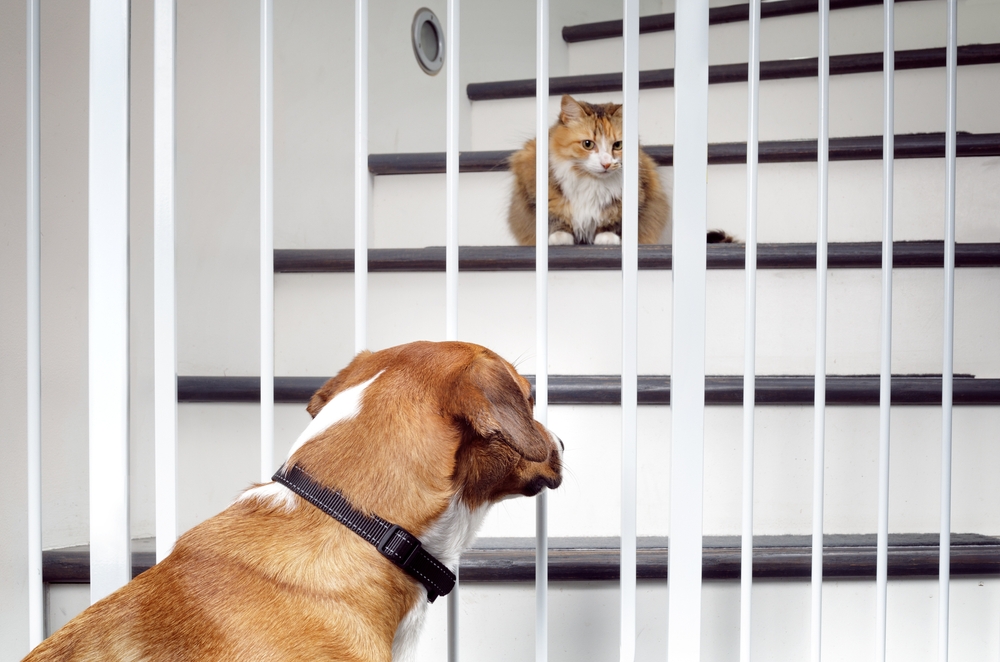
Preventing pet poisoning and other accidents requires that pet owners take proactive measures and practice diligence. Here are some essential tips to keep your furry friend safe:
- Pet-proof your home — Thoroughly inspect your home to identify potential hazards and pet-proof. This may involve securing cabinets, removing toxic plants, and keeping small objects out of your pet’s reach.
- Learn about pet dangers — Familiarize yourself with common household items that are toxic to pets and learn to recognize poisoning signs. Prompt identification and treatment can make a significant difference in your pet’s outcome.
- Use pet-safe products — Opt for pet-safe cleaning products, pesticides, and plants to minimize toxic substance exposure risk. Look for products labeled as safe for use around pets or consider using natural alternatives such as vinegar, lemon, and baking soda.
- Supervise your pet — Keep a close eye on your pet, especially if they are prone to getting into mischief. Supervision can help prevent accidents and allow you to intervene if your pet encounters a potential hazard.
Be prepared for pet emergencies
To be prepared for a veterinary emergency, ensure your phone has the contact information for your Krichel Animal Hospital veterinarian, a local emergency veterinary hospital, and an animal poison control center. Knowing the steps to take if your pet is poisoned can save precious time and potentially your pet’s life.
This Pet Poison Prevention Month, pledge to prioritize your pet’s safety and take proactive steps to keep them happy, healthy, and out of harm’s way year-round. However, our Krichel Animal Hospital team knows that pets have a nose for mischief, so if your furry pal finds themself in trouble, give us a call for help.


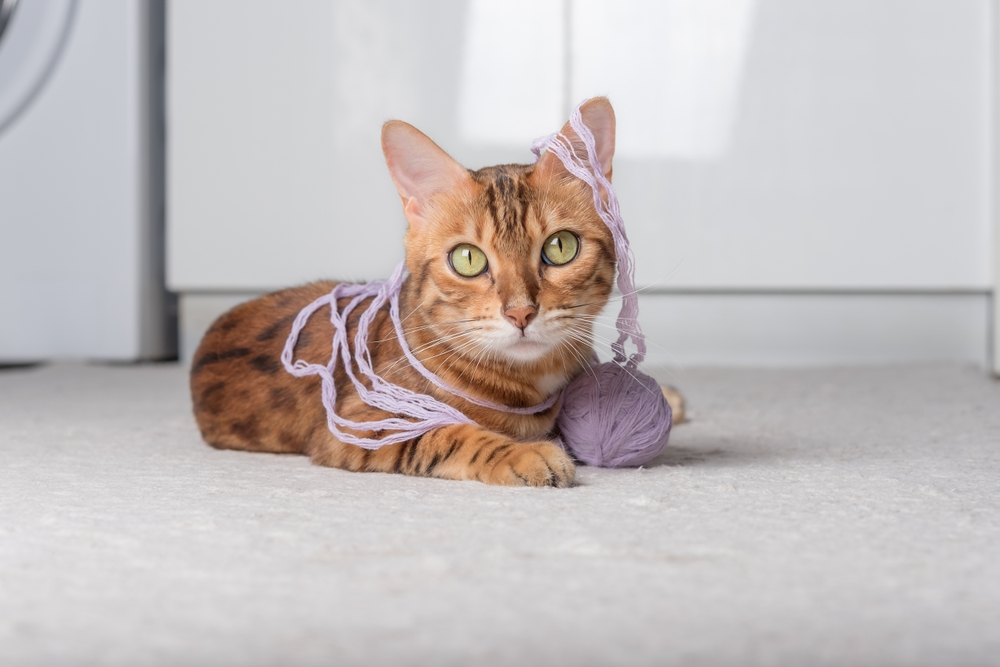
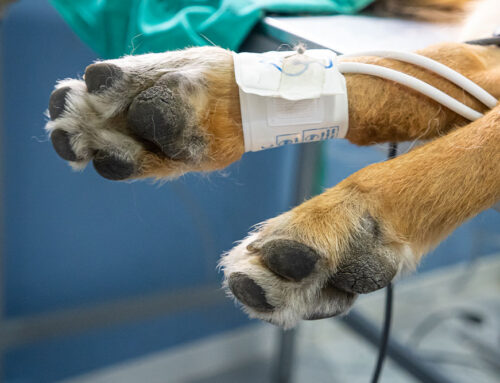
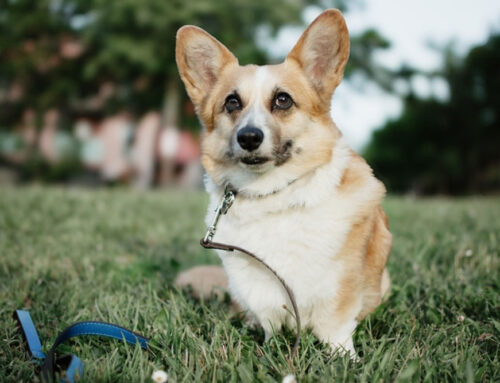
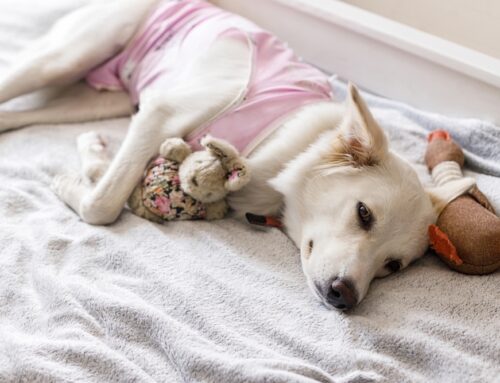
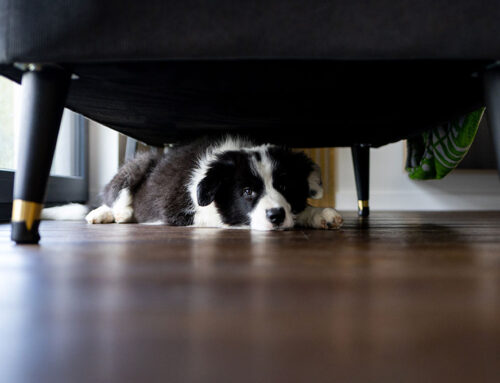
Leave A Comment